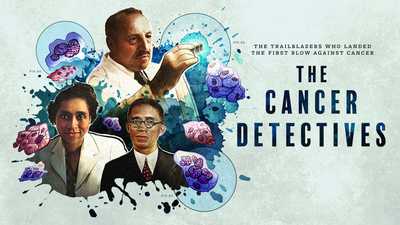Reverend Charles E. Coughlin (1891-1979)

One of the first public figures to make effective use of the airwaves, Charles E. Coughlin, was for a time one of the most influential personalities on American radio. At the height of his popularity in the early 1930s, some 30 million listeners tuned in to hear his emotional messages. Many of his speeches were rambling, disorganized, repetitious, and as time went by, they became increasingly full of bigoted rhetoric. But as a champion of the poor, a foe of big business, and a critic of federal indifference in the face of widespread economic distress, he spoke to the hopes and fears of lower-middle class Americans throughout the country. Years later, a supporter remembered the excitement of attending one of his rallies: "When he spoke it was a thrill like Hitler. And the magnetism was uncanny. It was so intoxicating, there's no use saying what he talked about..."
Born into a devoutly religious Catholic family on October 25, 1891, Coughlin grew up in a comfortable middle-class home in Toronto. He was ordained into the Catholic priesthood in 1916. By 1926, Coughlin had made a strong impression on the bishop of Detroit, who authorized him to build the Shrine of the Little Flower. Typical of Coughlin's dramatic excesses, the church he constructed, which was intended to serve a small parish of some two dozen families, could seat about 600. For pews Coughlin installed theater seats.
In 1927 Coughlin offered the first Catholic services on the radio. They were an immediate success. Part of Coughlin's appeal can be credited to his understanding of what the American public wanted to hear, but many attributed his popularity in part to the sound of his mellifluous voice. Writer Wallace Stegner described it as a "voice of such mellow richness, such manly, heart-warming confidential intimacy, such emotional and ingratiating charm, that anyone tuning past it almost automatically returned to hear it again." In the fall of 1930, CBS picked up Coughlin's radio show, broadcasting it over a national network for the first time. The priest began receiving approximately 80,000 letters a week.
In the 1932 presidential election campaign, Coughlin was a staunch supporter of FDR, avowing that it was either "Roosevelt or Ruin." For Coughlin, the highlight of the campaign was an invitation to speak at the Democratic National Convention. Although FDR had borrowed some of Coughlin's rhetoric, after his election victory, he moved to distance himself from the radio priest. Coughlin grew more critical of the Roosevelt Administration. In November of 1934, Coughlin set up his own organization, the National Union for Social Justice. Two years later he began publishing a nationally circulating paper called "Social Justice" and, as his public identification with Roosevelt's New Deal politics waned, he began to seek closer grounds with some of the most right-wing and reactionary groups in the country.
Although anti-Semitic themes appeared in some of Coughlin's speeches fairly early in his career, it wasn't until the late 1930s that the priest's rhetoric became increasingly filled with attacks on Jews. By 1938, the pages of "Social Justice" were frequently filled with accusations about Jewish control of America's financial institutions. In the summer of that year, Coughlin published a version of "The Protocols of the Elders of Zion." A virulently anti-Semitic piece of propaganda that had originated in Russia at the turn of the century, the "Protocols" accused Jews of planning to seize control of the world. Jewish leaders were shocked by Coughlin's actions.
Later that year, the radio priest delivered perhaps his most startling and hateful speech to date. In response to the November 10, 1938, "Kristallnacht" attack on Jews in German-controlled territory, Coughlin began by asking, "Why is there persecution in Germany today?" He went on to explain that "Jewish persecution only followed after Christians first were persecuted."
The owner of WMCA, the New York station that carried Coughlin's show, refused to broadcast Coughlin's next radio message. The Nazi press reacted to the news with fury: "America is Not Allowed to Hear the Truth" declared one headline. "Jewish organizations camouflaged as American...have conducted such a campaign...that the radio station company has proceeded to muzzle the well-loved Father Coughlin." A "New York Times" correspondent in Germany noted that Coughlin had become for the moment "the hero of Nazi Germany."
Coughlin's political influence diminished drastically after the United States entered World War II. In April 1942, Attorney General Francis Biddle ordered a federal grand jury investigation of "Social Justice" because of its apparently pro-Axis propaganda. Three weeks later, the U.S. Post Office suspended the publication's second class mailing privilege, and after years of trying to prevent Coughlin from publishing his anti-Semitic attacks, the Archbishop of Detroit Edward Mooney successfully forbade the priest from having any ties with "Social Justice" or "with any other publication." After the silencing, Coughlin continued to preach at the Shrine of the Little Flower, but by the time he died in 1979 at the age of 88, the media was giving him very little attention. In the years since, some extreme right-wing organizations have begun to grant Coughlin the status of an elder statesman. In the early '90s, one anti-black, anti-Semitic tabloid dedicated an entire edition to excerpts of the priest's writings and speeches.





